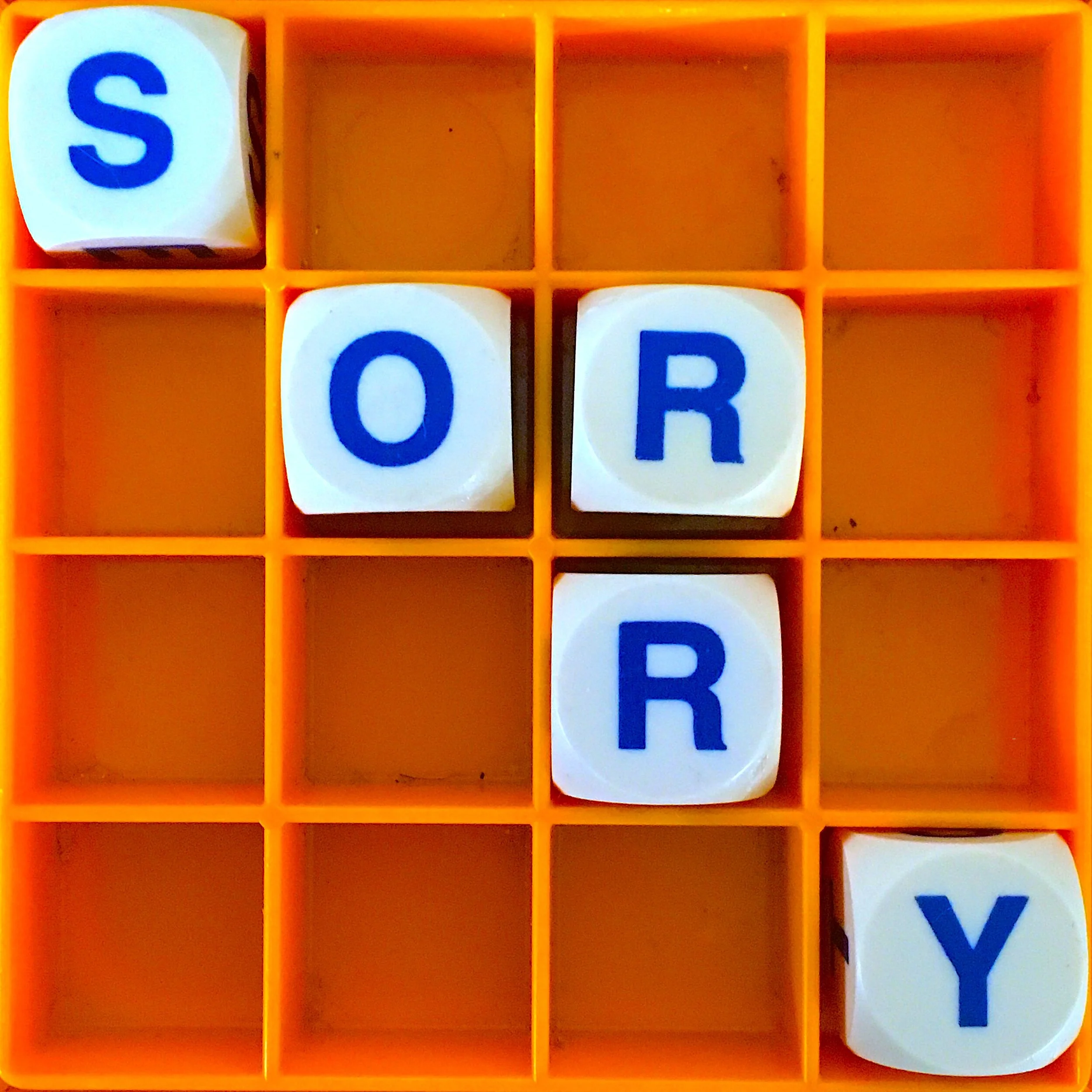Grab your stake and crucifix pendant, we're going vampire-hunting! Well, vampire-etymology-hunting. The podcast Buffering the Vampire Slayer, which recaps the TV show Buffy the Vampire Slayer episode by episode, invited me to answer their listeners' questions of language that the show had provoked. Together with BVTS hosts Kristin Russo and Jenny Owen Youngs, I tackle the etymology of coven, vampire/vampyre, wigging out, the name Buffy and Bovril; as well as google as a verb, conlang on TV, and why Latin is so often the language of spells and spookiness.
Read moreAllusionist 129. Sorry
Apologies are such important verbal transactions. So why are so many of them soooo bad? Susan McCarthy and Marjorie Ingalls from SorryWatch and Laura Beaudin of fauxpolo.gy pinpoint what to look out for, to sort the apologies from the fauxpologies.
Read moreAllusionist 95. Verisimilitude
When you’re watching a fantasy or science fiction show, and the characters are speaking a language that does not exist in this world but sounds like it could - that doesn’t happen by accident, or improvisation. A lot - a LOT! - of work goes into inventing new languages that sound real. Conlanger David Peterson talks about how he created languages for HBO’s Game of Thrones.
Read moreAllusionist 81. Shark Week
What is the expression 'beyond the pale' on about? How do you express the absence of feeling? Does 'testify' have anything to do with testicles? Do avocados have anything to do with testicles? How does the phrase "It's all Greek to me" relate to food styling? Can you have a caper with capers? Are sharks misunderstood, etymologically and morally? And finally: where do allusions come from?
Read moreAllusionist 23: Criminallusionist
iTUNES • RSS • MP3
Today, Phoebe Judge and Lauren Spohrer from the Radiotopian podcast Criminal stop by to talk about the linguistic challenges of crime reporting.
They also share their episode 'Pants on Fire', about lying. It's an extremely useful handbook if you fancy becoming either a human polygraph, or an excellent liar.
READING MATTER:
Lauren Spohrer wrote a very smart piece for Catapult about the ethics of cutting and editing information when constructing stories for Criminal.
Here's one version of the history of the term 'serial killer', courtesy of NPR, though apparently its origins are contested.
Body language often gives away a lie, but here are some tips for spotting lies over the phone.
Here's the transcript of this episode.
RANDOMLY SELECTED WORD FROM THE DICTIONARY:
Welsh onion
CREDITS:
Phoebe Judge and Lauren Spohrer make Criminal, which you can find at thisiscriminal.com. Amongst my favourite episodes are 'Triassic Park', 'Gil from London', and 'Angie'. You can see and hear Phoebe fending off attack dogs here.
'Pants on Fire' was produced by Phoebe Judge, Lauren Spohrer and Eric Mennel. The rest of this episode was produced by me, Helen Zaltzman. Thanks to Russ Henry for production help, and Martin Austwick for the music.
Communicate with me at facebook.com/allusionistshow, twitter.com/allusionistshow and twitter.com/helenzaltzman. No fibbing, please.
- HZ
Allusionist 18: Fix part II
iTUNES • RSS • MP3
The messiness of English is the price of its success. It is the most widely spoken language in the world, geographically, being an official language in 88 different countries, and there are countless different versions of it all over the world. With so many speakers in so many places, it would be impossible to establish a single 'correct' form of English; and, as became evident in Fix part I, to try to do so is a losing game.
In Europe, a new strain of English is emerging. It's not spoken very widely, but it is used by some of the most powerful people in the world. Hampton and Michael Catlin, founders of the collaborative online dictionary Wordset, lead us into this linguistic netherworld.
Beware: excessive suffixes.
READING MATTER:
Who WOULDN'T want to read the European Court of Auditors' 66-page 2013 report Misused Words and Expressions in EU Publications? Curl up on the sofa and prepare to discover bold new uses for 'homogenise', 'mission' and 'jury'.
The history of musical notation, do re mi - née ut re mi - is interesting; read more about it here.
If you're infuriated by someone who muddles up words like 'gamut' and 'gamete', you could direct them to diffen.com or the-difference-between.com.
The transcript of today's show is here.
The Guardian interviewed me about the Allusionist and Answer Me This; take a look here (if just for the accompanying photo).
RANDOMLY SELECTED WORD FROM THE DICTIONARY:
gleet
CREDITS:
Hampton and Michael Catlin founded Wordset, the online collaborative dictionary that aims to collect every different form of English. You can help out at wordset.org. You can also hear the Catlins on their podcast, We Have A Microphone.
This episode was produced by me, Helen Zaltzman. Thanks to Matthew Crosby for his vocal contributions. The music is by Martin Austwick. Hear and/or download more - WITH LYRICS! - at thesoundoftheladies.bandcamp.com.
Say hello to me at facebook.com/allusionistshow, twitter.com/allusionistshow and twitter.com/helenzaltzman.







